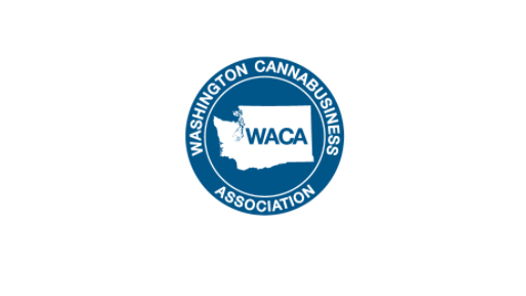Washington CannaBusinesses Consider Their Future

It’s been almost a decade since Washington state voters approved Initiative-502 (I-502), legalizing recreational cannabis in the Evergreen State. Washington, along with Colorado, was the first state to pass an adult-use marijuana market. In the nine years since approving I-502, eighteen states and Washington D.C. have legalized adult-use or recreational cannabis (as of July 1, 2021). Now, with federal legalization getting closer with each passing day, stakeholders in Washington CannaBusinesses are considering what comes next.
Recently, my colleagues Brad Blommer, Steph Barnhart, Andrew DeWeese and I attended the Washington CannaBusiness Association (WACA) “Bowl in One” Spring meeting in Walla Walla, WA. WACA is an association of cannabis businesses who have banded together to shape Washington’s marketplace. WACA is a powerful advocacy group. It’s lobbying efforts have given marijuana businesses a major voice in the state legislature, Governor’s office, and regulatory agencies. WACA has also been active in Washington, DC. On top of all of this, WACA hosts a number of networking events including a solid golf tournament!
However, we did more than just golf in Walla Walla. My Green Light Law Group colleagues and I attended the Spring meeting and got a chance to listen to and learn from a wide range of cannabis entrepreneurs. It would be impossible to summarize all the complex issues on the minds of Washington’s marijuana business leaders, but there were some consistent themes. The following are some of the significant concerns of WACA members:
Access to Capital. One of the most unique and challenging aspects of Washington’s marijuana regulatory framework is our residency requirement. Unlike many other states who have legalized cannabis, the Washington State Liquor and Cannabis Board (WSLCB) has maintained a strict residency requirement. In order to hold any equity in a licensed marijuana business, you must be a Washington resident. Individuals living outside of Washington can lend money to Washington businesses but cannot invest in Washington cannabis. While some marijuana businesses support these restrictions, it has created a limited marketplace. Individuals seeking to sell a licensed business can only do so to Washington residents. The residency restriction also severely limits the ability to raise money as the pool of potential investors is limited to Washingtonians. As more states legalize, the residency requirement has become an increasingly pressing issue due to the competition that will undoubtedly come with federal legalization.
Consistency from the WSLCB. A common refrain from many of the attendees in Walla Walla was the inconsistent enforcement from the WSLCB. WACA was instrumental in the passage of the Senate Bill 5318 in 2019, which reformed the WSLCB and, among many other things, prevented the WSLCB from terminating marijuana licenses for a single violation unless public health and safety are at risk. Despite the change in law, many licensees feel that the WSLCB still needs to work on how it regulates the industry. I spoke with several licensees who mentioned the WSLCB’s recent move to target producers and processors who package products in glass jars or shot glasses. The WSLCB has instructed several retailers to remove such products from their shelves as they allegedly violate Washington regulations prohibiting marijuana products from being packaged and given away with other items. The problem is not only that this is a ridiculously prohibitive interpretation of its regulation, the policy is only enforced in certain regions. Licensees also complained about inconsistent enforcement regarding canopy space, delivery, and traceability.
Consumption Lounges. I have written about how Washington is falling far behind when it comes to cannabis tourism. While states like New York and Nevada are rolling out cannabis consumption clubs, it remains a felony for any business to allow cannabis consumption on site. If Washington is going to compete with other states, it must provide people a place to consume cannabis.
Delivery. Washington does not allow for the direct-to-consumer delivery. In a world where consumers increasingly expect companies to deliver products straight to their door, Washington cannabis businesses feel left behind.
Social Equity. WACA has been active in supporting the work of Washington’s Social Equity in Cannabis Task Force to address systemic inequality in the cannabis industry. I recommend anyone who is involved or interested in Washington cannabis to read WACA’s position paper on this subject.
BOTTOMLINE
Washington’s recreational cannabis market is one of the oldest in the Nation. As Washington approaches the ten-year anniversary of I-502 we will remain involved with WACA and continue to report on all things related to Washington cannabis.
Please contact our Seattle cannabis law office. You can contact Daniel Shortt at info@gl-lg.com or 206-430-1336.
